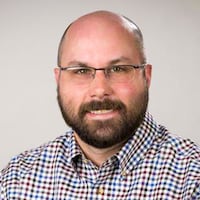Both organizations hope to match members of certain groups — people with disabilities for the Special Olympics and those age 50 and older for the Senior Olympics — with a sport about which they are passionate, even if it is not highly publicized.
“A lot of people can relate to trying your best at a sport that might not be mainstream,” said David Gilbert, president and CEO of the Greater Cleveland Sports Commission, which organized last month’s Ohio Senior Olympics State Games and will host next summer’s National Senior Games.
“There are thousands of people in Ohio who train and compete because they love it, not because they see it once every four years.”
Both organizations hold annual state games in Ohio. The Special Olympics’ summer games ran from June 22-24 in Columbus, many of the events at Ohio State University facilities. About 2,500 athletes competed, including 213 from Butler, Champaign, Clark, Greene, Montgomery and Warren counties.
The Senior Olympics State Games ran from July 23-29 with a pool of athletes that far exceeded the average of about 700 to 800 per year, Gilbert said.
“It’s a year-round training and competition program, but it’s competitive based on skill so skill does not determine whether someone can participate,” said Kathy Duffin, a Special Olympics Ohio area representative for the region covering part of southwestern Ohio who is also the Clark County coordinator. “Each sport has a statewide competition, so it’s chance for everyone.”
Special Olympics Ohio saw its biggest recent increase in the category the national Special Olympics calls “participants,” those who trained but did not compete in at least one competition. In 2011, there were 17,013 Special Olympics athletes and 13,196 participants in Ohio. The number of coaches grew from 3,100 in 2005 to 11,000 in 2011, according to the national organization.
Ohio ranked sixth nationally in 2011 in Special Olympics athletes in participants.
“They do take it very seriously,” said Vicki DeAtley, the Montgomery County coordinator for Special Olympics Ohio. “They want to excel just as much as everybody else does.”
The same could be said for the Senior Olympics, which will be spotlighted in Ohio throughout the next year. Cleveland was awarded the Summer National Senior Games for 2013 by the National Senior Games Association, so Gilbert said he wanted a big turnout for the state games in 2012. State games in even-numbered years serve as qualifiers for the national games.
Gilbert, whose group has experience organizing several kinds of college and professional sporting events, said he heard unique stories from the senior athletes. One woman was competing to celebrate a large weight loss. Another was rebounding from injuries suffered in a car wreck.
“It’s especially neat to watch the amateur side of sports, just how passionate the people are,” Gilbert said. “The passion doesn’t come from being the best of the best, but I think it comes from trying to do their own personal best in a sport they’re passionate about.”
Both the Senior and Special Olympics have numerous smaller competitions throughout the year along with the marquee statewide games. Their sports range from badminton, cricket, figure skating, gymnastics, weight lifting, shuffleboard, golf, triathlon and even, for the seniors, pickleball (best described as a mix between tennis and ping pong).
Organizers underline the athletes’ ability to train and compete as part of their general well-being, especially at a time when many of their sports are highlighted to the world.
“I think this is a real opportunity for all athletes in the community to participate,” said Mary Swagler, Butler County coordinator for Special Olympics Ohio. “They don’t have to be an elite athlete, and I find that our athletes become very self-confident. They end up reaching out in their community more, volunteering or other things, because of what competing does for them.”
About the Author
